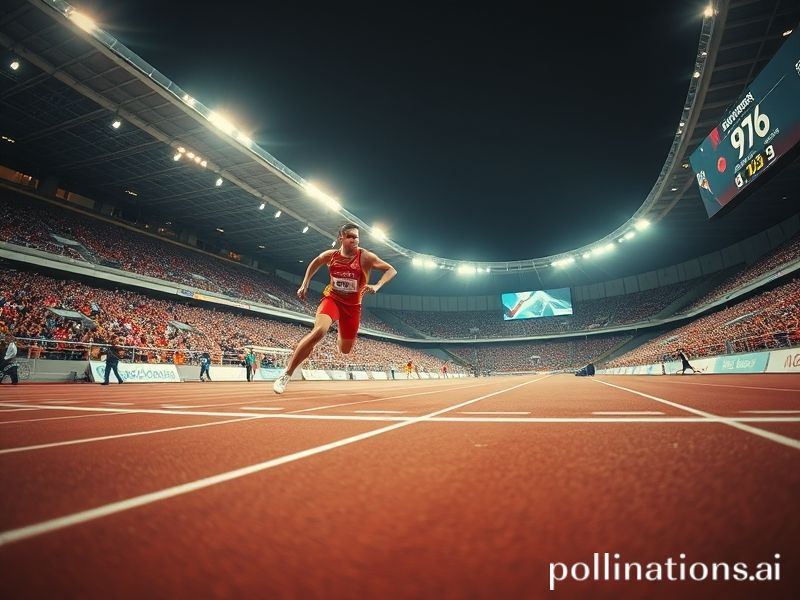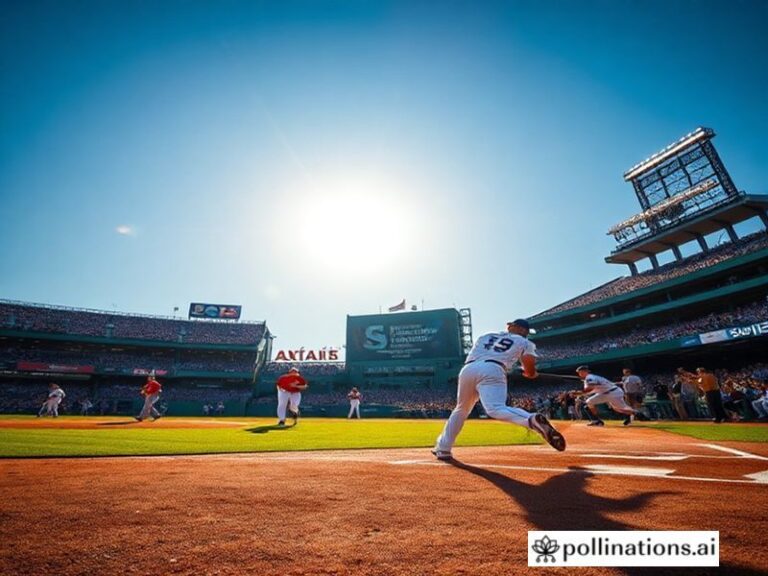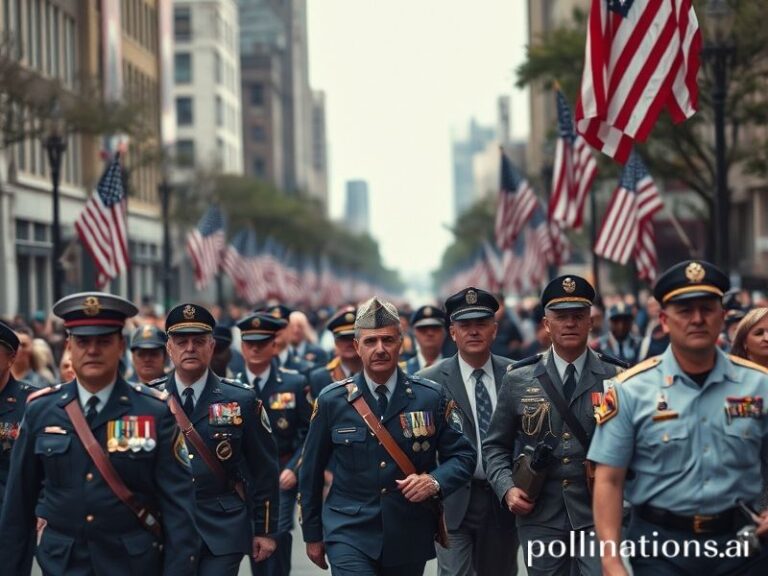World Athletics Championships: Where National Debt Sprints Against Personal Bests
**Track, Field, and the Theater of National Dreams**
*Dispatch from the cheap seats of the World Athletics Championships*
By the time the 4×400-meter relay limped across the finish line in Budapest last August, the scoreboard read like a UN roll-call written by someone with a grudge: USA 12 golds, Spain 1, India 0 but a billion heart emojis. In the stands, a Ghanaian brass band dueled with a Polish oompah ensemble for sonic supremacy while a lone Norwegian clanged a cowbell in self-defense. If you squinted through the heat haze rising off the mondo track, you could almost see the ghosts of empires jogging the warm-up lane, timing their splits.
The World Athletics Championships are sold to us as pure meritocracy—fastest kid wins, cue anthem, fade to Nike commercial. In reality they are a three-ring geopolitical circus where governments outsource patriotism to teenagers wearing spikes tighter than the national budget. Kenya still brings distance medals the way Switzerland brings chocolate: reliably, suspiciously, and with customs forms no one wants to inspect too closely. Meanwhile China invests in pole-vaulting the way it invests in African ports—vertically, opaquely, and with an eye on 2049 legacy metrics.
This year’s plot twists came gift-wrapped in irony. Norway’s Jakob Ingebrigtsen reclaimed the 1,500-meter crown, thereby proving that a nation famous for slow-burning oil money can still produce fast-twitch capitalism. Across the field, the Dominican Republic won its first-ever gold in the mixed 4×4, prompting every hedge-fund analyst to recalibrate Caribbean GDP projections before the athletes had even cooled down. And for the first time since the invention of stopwatches, no Russian flags fluttered—just a neutral banner the color of fresh laundered guilt. The IOC calls it “protecting the integrity of sport”; everyone else calls it Tuesday.
The broader significance? Try this: 210 countries tuned in, which is 15 more than belong to the UN and roughly the number currently claiming ownership of a South China Sea reef. Viewership numbers beat the last COP climate summit by a factor of three, suggesting humans would rather watch 10 seconds of sprinters than 10 hours of melting glaciers. Priorities, darling.
Yet beneath the Spandex and photo-finish smugness lurks a darker relay: the baton pass from amateur idealism to full-tilt authoritarian efficiency. Qatar bought a worlds, Saudi is shopping for one, and Eugene, Oregon—population 176,000 and one Phil Knight—hosted last year without bothering to bid, proving that if you build enough waffle-soled infrastructure you too can skip the messy democracy part. The sport’s governing body, ever allergic to introspection, responded by announcing a new $10 million integrity fund, financed largely by the same sponsorship contracts that require athletes to tape over non-swoosh logos or face expulsion from the breakfast village.
Back on the track, the clock keeps the only honest scoreboard. It does not care about your GDP, your doping lawyer, or the sentimental backstory your state broadcaster just fed to Netflix. It will, however, happily outlive every politician waving from the VIP tribune, which may explain why crowds still cheer themselves hoarse for something as pointless as a man throwing a stick farther than the previous man. In a world busy monetizing oxygen, there remains a primitive comfort in measurable futility.
So when the lights dimmed on Budapest and the portable bleachers were folded into yet another Eastern European warehouse, the medal table was already being recast as soft-power futures. The Americans flew home with 29 medals and a fresh congressional hearing on collegiate NIL rights; the Jamaicans landed in Kingston with four golds and an IMF repayment schedule slightly less terrifying than the week before. And the Eritrean marathoner who outsprinted three former training partners now wearing different passports? He got a hero’s welcome, a tax-free Land Cruiser, and the eternal hope that maybe—just maybe—next year the visa lines will be shorter.
The rest of us received the usual consolation prize: a reminder that nationalism is a performance-enhancing drug no lab can detect, and that every starting gun sounds eerily like a countdown to the next news cycle. Lace up accordingly.







